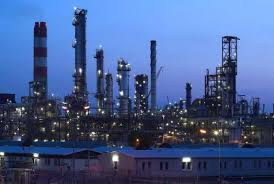
Mkpoikana Udoma
Port Harcourt — The Environmental Rights Action/ Friends of the Earth Nigeria ERA/FoEN has condemned the razing and destruction of vessels laden with stolen crude oil or any other petroleum products by the military, describing the action as a worrisome and environmentally unfriendly way of curbing oil theft.
Recall that the military has increasingly destroyed crude oil and other petroleum products recovered from suspected oil thieves in the Niger Delta, the most prominent being a Cameroon-bound vessel, MT Tura II, allegedly caught with 800,000 barrels of stolen crude and razed by the military with the claims of making the destruction a deterrent.
But the Executive Director of ERA/FoEN, Barr. Chima Williams, explained that the burning of crude oil laden vessels disposes a high level of chemical content into the water bodies that destroys the eco-lives and aquatic organisms which humans need to survive.
Williams added that the destruction of crude oil laden vessels also deprives the people of their sources of livelihood, when the chemical waste from the burnt vessels and crude oil comes in contact with the environment, killing of aquatic life and poisoning the surrounding soil.
The ERA boss called on the military and security operatives to put an end to the burning of crude oil laden vessels, say that the action goes against every tenet of environmental protection and environmental health.
He called on government at all levels to move away from such hazardous means of curbing oil theft, and to map out effective action plans that will protect the environment, protect the livelihood of the people in their pursuit of justice and also create an economic value from seized crude oil and the conveying vessels.
“Destroying such vessels with their crude contents produces high level chemical debris that follows tidal movement to other parts of the country. This kind of devastation destroys the aquatic organisms needed to satisfy man’s nutritional and survival needs.
“What is discharged includes chemical contents from the crude and the vessels that are harmful to the human health. The health implications of such activities may not have immediate effects but will be transferred to the people who inhabit these areas, as the primary occupation of the Riverine people are fishing and farming, which is dependent on the surrounding waters.”
Commenting on the economic implication of such activities, ERA stated that destroying and wasting away stolen crude, was a disfavor to the country’s economy, as such crude could generate funds that will build infrastructures and better the lives of the people.
“Destroying badges of crude that runs into millions is equivalent to denying the nation and its people of the revenue that can be derived from such large amounts of crude. This is a country in dire need of resources to rebuild the economy, to build infrastructures and to better the lives of the people. The country is in heavy dept, yet we are destroying sources of enhancing our economy. The burnt vessels can be transformed into other uses like enhancing the work of seafarers in the country.”
On the legal implications of the destruction of vessels laden with stolen crude, the ERA boss described it as the destruction of evidence that could lead to proper prosecution of the case.
He further stressed that such actions wipe away the key principles of the rule of law, as the chances of conviction or proper acquittal are no longer visible. According to him, this was a denial of justice to the nation, the individuals involved and the victims of their negative operational conducts and activities.



